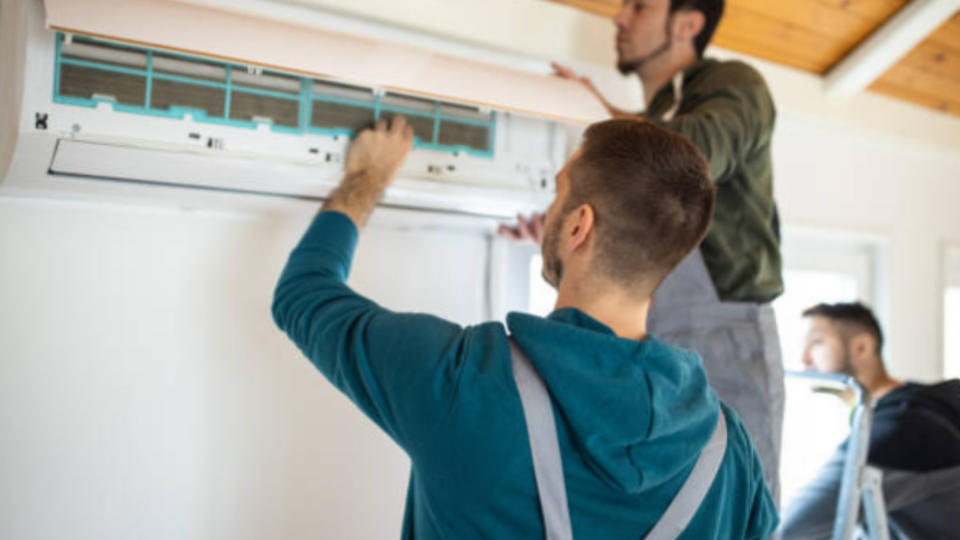Have you ever been hit by an unpleasant odor wafting through your home or office? If so, you’re not alone. Many homeowners and business owners face the issue of smelly vents, and finding a long term fix can dramatically improve the comfort and air quality of your space. In this article, we will explore the reasons behind these odors and provide practical solutions to ensure your vents remain fresh and odor-free.

Understanding the Problem of Smelly Vents
The first step in fixing smelly vents is understanding why they emit unpleasant odors. These smells can stem from various sources, such as mold, mildew, or accumulated dirt and debris. Additionally, rodents or pests trapped in the ventilation system can contribute to the foul odor. Identifying the root cause is essential for implementing a lasting solution.
Common Causes of Smelly Vents
Mold and Mildew
Mold and mildew might develop in your HVAC system due to moisture buildup. This is a common cause of musty smells. Mold spores can spread through the air, affecting indoor air quality and posing health risks. Addressing this issue promptly is crucial.
Dirt and Debris
Over time, dirt and debris can accumulate in your vents. This not only causes unpleasant odors but can also hinder airflow, reducing the efficiency of your HVAC system. Regular cleaning and maintenance can help prevent these issues.
Pest Infestation
Rodents or insects may find their way into your vents, creating nests and leaving behind droppings. The decomposition of organic matter can lead to strong, unpleasant odors. It’s essential to address any pest infestations promptly to avoid further complications.
Steps to Fix Smelly Vents for the Long Term
Regular Cleaning and Maintenance
A proactive approach to fixing smelly vents involves regular cleaning and maintenance. This includes changing air filters, cleaning ducts, and ensuring proper ventilation in the home or office. Regular maintenance can prevent odors from developing in the first place.
Addressing Mold and Mildew
If mold or mildew is present, it’s essential to address it immediately. Consider hiring a professional to inspect and clean your HVAC system. For more information on handling mold issues, visit mold in HVAC system solutions.
Pest Control Measures
Once pests are identified as the cause of the odor, take immediate action to remove them and seal entry points to prevent future infestations. Professional pest control services can be valuable in addressing this issue.
Investing in High-Quality Air Filters
Air filters play a vital role in maintaining indoor air quality. Investing in high-quality filters can trap more particles, reducing the likelihood of odors developing. Regularly replacing filters as recommended by the manufacturer ensures optimal performance.
The Role of Professional HVAC Inspection
Professional HVAC inspection can help identify underlying issues that may not be visible during routine maintenance. Technicians can provide expert advice and solutions tailored to your system’s needs, ensuring a long term fix for smelly vents.
Preventative Measures for Odor-Free Vents
Humidity Control
Controlling humidity levels in your home or office can prevent mold and mildew growth. Consider using a dehumidifier if necessary to maintain optimal humidity levels.
Sealing and Insulation
Proper sealing and insulation of ducts can prevent dust and debris from entering the system. This not only helps in fixing smelly vents but also improves the efficiency of your HVAC system.
Regular Ventilation
Ensuring regular ventilation can help disperse any accumulating odors. Opening windows and using exhaust fans can aid in maintaining fresh air circulation.
Common Mistakes to Avoid
When dealing with smelly vents, it’s crucial to avoid common mistakes such as neglecting regular maintenance or using low-quality air filters. These oversights can exacerbate the problem rather than solving it.
When to Call a Professional
If the odor persists despite your best efforts, it’s time to call a professional. Persistent smells may indicate a more severe underlying issue that requires expert attention. For more insights, check out air conditioner smells musty.

FAQs
Why do my vents smell bad?
Common causes include mold, mildew, dirt, debris, or pest infestations.
How often should I clean my vents?
It’s recommended to clean vents every 1-2 years, but more frequent cleaning may be necessary if you notice persistent odors.
Can I fix smelly vents myself?
While some maintenance can be done yourself, persistent issues should be handled by a professional to ensure a long term fix.
This article contains affiliate links. We may earn a commission at no extra cost to you.